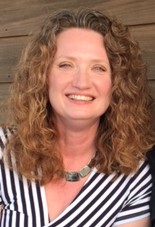I’ve been editing a lot of fantasy and sci-fi lately, and I find that my authors love to capitalize words and terms that really shouldn’t be capped. And I get it—I really do.
For instance, when you’re creating a fictional world (whether it’s SF/fantasy or not), it’s natural to want to capitalize the names of all the places in this world. For instance (and from the top of my head, not a client’s work):
- Aldo traveled the High Road to Mount Crumpet, crossing the River Blue Fin on his way.
We’ve capitalized the name of the road, just like we’d capitalize Main Street or Downing Street or the Champs-Élysées. We capped Mount Crumpet, just as we would cap a geographical location like Mount Hood or the Matterhorn or Mount Everest. And we capped the name of the river just as we would, well … you get the picture.
Everything capped in this sample makes sense according to the world in which we really live (as opposed to the fictional world we’re creating), so ensuring consistency throughout the 80,000 or 90,000 or 100,000+ words making up the book isn’t so hard because we’re following rules we’re used to.
Where it gets tricky is when we start creating our own rules—or fail to create or own rules—and start capitalizing just because it “feels” right or it “looks” right. Consider this (again from my own noggin):
- Magda stooped to pluck a bloom from the Luminous bush as the Watcher observed her from behind the Wall and recorded her actions in his Notebook.
The first oddly capped word is “Luminous,” which is the name of a flowering bush in this sample. In our real world, we wouldn’t capitalize “rose bush” or “lilac bush,” but in this world we’re capping “Luminous.” This doesn’t fit with accepted grammar rules, so it requires a note to ensure every use of “Luminous” is capped.
Next, we capped “Watcher.” Evidently a “Watcher” is the name of a certain position or job or role that a character plays and is important enough to capitalize. This is also different from the real world because we wouldn’t capitalize “teacher” or “janitor” or “lawyer” or “server” if we were writing about one of them. Because of this incongruity, I’d make another note.
After “Watcher” we have “Wall” capitalized. Now, it could be that this wall is an important wall, that it’s THE “Wall” that surrounds an important place in the world and is therefore capped to signify its importance. However, there could also be several “walls” in this world and the author would likely cap them all. I’ve seen both scenarios—a specific, clear use and a willy-nilly use. At any rate, I’ll make a note of it.
And finally we have “Notebook.” It’s a gadget. It must be an important gadget because it’s capped, right? Well, maybe, maybe not. This occurs just as often in sci-fi as it does fantasy. Just because a gadget doesn’t exist in our real world doesn’t mean it should be capitalized in our fiction. If it’s a fictional brand name, that’s one thing, and I’d cap that. If it’s simply the generic name of a fairly ordinary gadget in my fictional world, I wouldn’t. So in this instance, I’d make a note about “Notebook.”
Capitalization choices like these show up all the time in the fantasies and sci-fi books I edit, and they require me to create a spreadsheet for each book. In each spreadsheet, I list every unique capitalization and spelling instance to ensure consistency throughout the book.
I’m working on a sci-fi book right now; I’m about 65K words into it, and my spreadsheet contains more than 120 entries.
I’m not suggesting that authors stop capitalizing unique words in their books. What I am suggesting is that you make these choices consciously, thoughtfully. Think about what the word in your fictional world represents and ask yourself if you’d capitalize its cohort in English. (You wouldn’t cap “teacher,” so why are you capping “Watcher”?) If you have a solid reason for doing it and it’s a reason that’s significant to and makes sense in the world you’re creating, by all means capitalize that word. That’s why God created spreadsheets.
Your writing should be thoughtful and consciously done, no matter what we’re discussing, so in a way this is extraneous advice. However, I think it’s advice some folks need to hear (and heed). Whether you hire an editor or not, you want your writing to be consistent because readers love to pick books apart. If your editor isn’t keeping a spreadsheet to track your terms and your personal style (or if you’re not hiring an editor), you definitely should be keeping one.
And really, you should hire an editor. Another set of eyes, a professional with years of experience is a valuable asset. Let’s talk about that. Send me an email at sharon@editorsharonhoneycutt.com and tell me about your work in progress. I’ll help you figure out your next, best step.
Thanks for stopping by! Leave questions or comments below and please share this with other writers.
